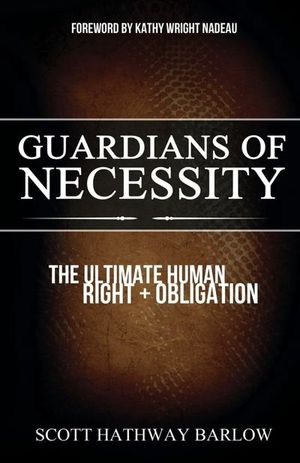Guardians of Necessity
Published by Morgan James Publishing
You are alone and finishing up some shopping at the local mall when you hear a young woman scream for help. You notice that she’s surrounded by several men. Your mind begins the justification process: she is just playing; someone else will come to her aid. As you hesitate, the young woman is dragged into a van and they disappear. Already late for a meeting, as you power walk toward your office you see a young boy crying and being dragged to a car. Your mind begins the justification process: the child is just being petulant; if it is really an issue, others will jump in to help the child. You hesitate and the boy is forced into the car, and they disappear. You just arrive home from work exhausted and ready for supper. You see your elderly next-door neighbor, who lives alone, being verbally belittled by a worker he hired to do some type of chore. Your mind begins the justification process: it’s a dispute between them; I don’t know my neighbor well enough to intervene. In each of these cases, would you be surprised to learn that the young woman was abducted and murdered, the young boy is still missing, and the elderly neighbor was just scammed of a significant portion of his life savings? Most of us think we are not capable of rendering aid. If we do, we reason, we could be hurt, sued, or embarrassed because we misinterpreted the situation. Guardians of Necessity recognizes the right of all humans to defend themselves and others against an attack. This right is in reality an obligation that carries an awesome responsibility. Within these pages the reader is taken through the history of this right, the legal and political climate surrounding this right, and the importance of preparing to exercise this ultimate right.
BUY NOW FROM
COMMUNITY REVIEWS

